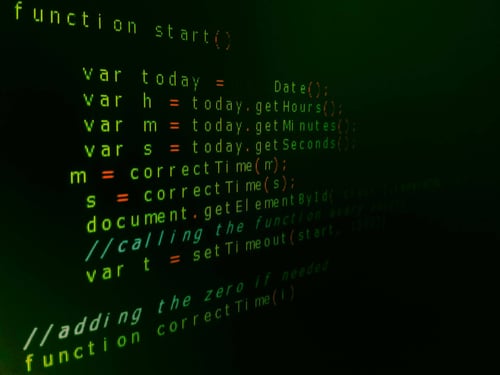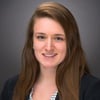The vast majority of Master's degrees in computer science demand a Bachelor's in Computer Science.
We firmly disagree with this requirement.
At Qwasar, we do not require a Bachelor's in Computer Science and offer a Master's in Computer Science for Non-CS Majors.
Believe it or not, there are other ways to learn computer programming that isn't sitting in CS major lectures at a university! Entry to a Master's in Computer Science degree shouldn't be gated based on whether or not someone had access to majoring in Computer Science. What matters is your knowledge, skills, and programming experience today, not when you got your Bachelor's degree.
In this article, we'll explain more about how our admission system works and how it's open to applicants who do not have a Bachelor's in Computer Science.
About our Modern Master's Degree Program
A modern master’s degree is full of modern programming languages, not material from decades ago that won’t be relevant in future careers. We use languages such as Go, Python, React, Rust, etc. and don’t focus on aging languages or ignore commonly used cloud tools and databases. To that end, we look for programming experience in the admissions process.
Our program is designed to ensure learners are in control of their own learning. You have autonomy and flexibility over your course curriculum, capstone, and thesis. There is a lot of programming involved and no video lectures, which is different from most master’s degree programs in traditional education. Our learning science is designed for you to learn by doing through project-based learning and competency-based education not videos and lectures. The retention of information is far greater when you’re able to actually “do” and practice concepts you’re expected to be learning. This program is also great for career switchers from other backgrounds or previous degrees. There are many transferable skills that align with our program and transferring into a technical career.
Prerequisites and Admission Requirements for Non-CS Majors
A Bachelor's degree is required, but not in Computer Science - it can be in any discipline. Also, a minimum requirement is that you have coding experience in at least 2 programming languages as well as a minimum understanding of the software development lifecycle, command line, data structures, and algorithms.
You may have learned this in a CS degree, but perhaps you learned it through a bootcamp, or are self-taught. Perhaps you got into programming through a job and now want to pursue it intensely and become a software engineer.
Perhaps you have a strong background in maths or a strong quantatitve background, and want to go into Machine Learning - but see that most jobs require a MSCS with a specialization in Machine Learning.
Regardless, we look at what code you've written, and what you're capable of doing today.
.jpg?width=400&height=267&name=pexels-ivan-samkov-5676744%20(1).jpg)
Our Master's Degree Application Process
Application is not the traditional approach. We focus on evaluating your skills - beyond just technical - in a process that more closely resembles interviews than academia. Traditional universities focus on GPA, grades, and letters of recommendation. We focus on your coding ability, your logic and reasoning skills, and your problem solving skills.
To apply to our Master’s in Computer Science program, expect the following steps:
- Step 1: Submit your application online.
- Step 2: Our committee reviews your application
- Step 3: You will either be sent a Hackerrank test or a take-home assignment.
- Step 4: Following a passed take-home assignment, you will be invited to a technical interview with the Qwasar team
- Step 5: Following a successful interview, you will be sent an offer letter.
- Step 6: If you choose to accept the offer letter, you will be sent an enrollment contract and instructions to make your program payment in full.
Following a successful application and enrollment, you will be expected to attend orientation, virtually of course! If you’re ready to apply: https://qwasar.io/masters-of-science-in-computer-science/apply-masters-computer-science/
Our admissions process is designed to evaluate your ability to code, to understand how you think technically, and to get to know your interests and motivations.
We do not require letters of recommendation from professors, because we don't believe that your time at college or university should dictate your opportunity to do a Master's degree. Additionally, many who do "traditional" learning don't score well but are exceptional engineers. A lectures-and-exam model isn't necessarily the best indicator of someone's ability to code and problem solve!
Master's in Computer Science: Areas of Specialization
There are three areas of specialization within our modern master’s degree program. Each specialization will include a different course curriculum load and focus on varying languages and concepts. These specializations are:
- Backend Software Engineering: Software engineering focuses on low-level programming, operating systems, and understanding at a fundamental level how a computer operates. From there, students move on to specialize in a modern programming language and can choose from C++, Rust, Go, or Java.
- AI/Machine Learning Engineering: AI/Machine Learning engineering focuses on predictions, optimizing and improving the predictions, and early deep learning. Students will complete thesis or projects in Natural Language Processing, computer vision, and have the ability to customize their focus area within the AI/ML field.
- Full Stack Development: Full Stack engineering focuses on both the front-end and back-end. Students gain skills and experiences in both, focusing on both modern languages and also common databases. Students also cover significant amounts of data structures and algorithms, and have the opportunity to build 5 significant full stack projects in addition to the Capstone.
For more on our curriculum: https://qwasar.io/masters-of-science-in-computer-science/masters-in-computer-science-curriculum/

A Modern Master's Degree Student Experience
The format of our master’s in computer science program for non-cs majors is offered on a full-time or part-time basis. For full time students, attendance is mandatory Monday through Friday for about 40-50 hours per week. This program lasts for 13 months in duration. For part time students, attendance is mandatory Tuesday evenings and Saturdays for about 15-20 hours per week. This program lasts for 24 months in duration. It’s important to choose a learning option that fits your schedule and will allow you to be successful.
All students are required to daily meetings and participate in weekly events such as:
- Daily Standups: Standups are held every morning to kick off the day with the cohort. This gives students an opportunity to share any progress and blockers on their projects. Everyone participates and shares status updates with one another and has an opportunity to get support from peers. These meetings hold students accountable and resemble what happens on the job.
- Coding Collaboration Workshops: Students of all levels are divided into small groups to work on a timed challenge for a unique task. By working together, each group can leverage the collective skills of one another and make a network within the cohort.
- Engineering Labs: After the first few courses, students will stop Live Coding Sessions and instead join an Engineer Lab. These are virtual, subject-based labs focused on hands-on projects built in groups. Projects offer an opportunity to explore the subject area while learning to collaborate with other students. Both projects and the labs themselves are great items to put on the resume!
- Live Coding Sessions: 1-2 hour remote live video call in which we solve a coding problem in front of other learners. This gives learners the opportunity to share thought processes and prepare for any blockers.
- Technical Presentations: Building communication and public speaking skills is important for the workplace as an engineer. By public speaking, we don't mean in front of thousands of people, but rather to 10 or 20 people. This could be you as an engineer presenting to your team, or management. Weekly Presentations will rotate subject areas and will rotate presenters, so students will attend presentations then present themselves every 6-8 weeks. Topics cover new tools or technologies, common technical interview subjects, or themed startups.
- Virtual Library Time: There are always opportunities available to code with one another in coworking rooms.
Our style of instruction is 100% learning by doing. Software engineers on the job are expected to solve problems, write code, collaborate, do code reviews, design architecture, debug, and ultimately deliver software that works. This is how our program is built, which is VERY different from a traditional program focused on lectures, grades, and passing. At Qwasar we use an AI-driven Learning Management System, built in-house by our engineers and learning experts. It’s a sophisticated platform with coding environments, autocorrectors called Gandalf, and more that empowers learners to take control of their learning.
Instead of traditional lecturers, professors, and instructors, Qwasar uses Program Managers. Program Managers are like engineering managers or coaches, and are not focused on knowledge delivery but on supporting your learning journey successfully. In addition to program managers, members of the Qwasar community are available to support students through a variety of ways. Students will be connected with their program managers as well as advisors to mentor them throughout the program.
Other Routes to Go
If you decide an MS is not the right fit for you, we offer courses and pathways to fit your needs. These flexible options enable learners to choose the learning option that suits their lifestyle, budget, career goals, and learning style.
- Self-Service
- Part-time Professional Flex
- Intensive Bootcamps (PT/FT)
For more information on our professional applied courses and pathways in engineering: https://qwasar.io/tech-talent-programs/


